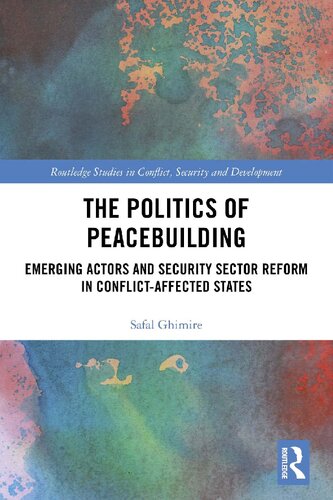

Most ebook files are in PDF format, so you can easily read them using various software such as Foxit Reader or directly on the Google Chrome browser.
Some ebook files are released by publishers in other formats such as .awz, .mobi, .epub, .fb2, etc. You may need to install specific software to read these formats on mobile/PC, such as Calibre.
Please read the tutorial at this link: https://ebookbell.com/faq
We offer FREE conversion to the popular formats you request; however, this may take some time. Therefore, right after payment, please email us, and we will try to provide the service as quickly as possible.
For some exceptional file formats or broken links (if any), please refrain from opening any disputes. Instead, email us first, and we will try to assist within a maximum of 6 hours.
EbookBell Team

4.3
28 reviewsThis book examines and compares the diverging security approaches of the UK, China and India in peacebuilding settings, with a specific focus on the case of Nepal.
Rising powers such as China and India dissent from traditional templates of peacebuilding and apply their own methods to respond to security issues. This book fills a gap in the literature by examining how emerging actors (China and India) engage with security and development and how their approaches differ from those of a traditional actor (the UK).
In the light of democratic peace and regional security complex theories, the book interprets interview data to compare and contrast the engagement of these three actors with post-war Nepal, and the implications for security sector governance and peacebuilding. It contends that the UK helped to peacefully manage transition but that the institutional changes were merely ceremonial. China and India, by contrast, were more effective in advancing mutual security agendas through elite-level interactions. However, the ‘hardware’ of security, for example material and infrastructure support, gained more consideration than the ‘software’ of security, such as meritocratic governance and institution building.
This book will be of much interest to students of peacebuilding, development studies, Asian politics, security studies and International Relations in general.